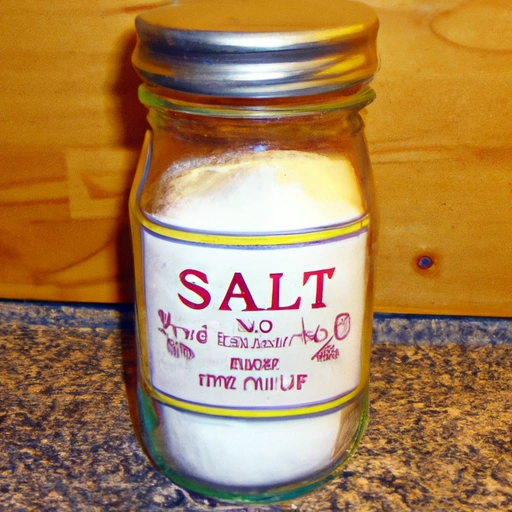Seasoning Salt
Description

Seasoning salt is a versatile blend of salt and other flavorful ingredients such as herbs, spices, and additional flavor enhancers. It is designed to elevate the taste profile of various dishes, providing a convenient way to add complexity and depth of flavor with a single ingredient. Seasoning salts often include elements like garlic powder, onion powder, paprika, and sometimes monosodium glutamate (MSG) for an additional savory note.
Commonly available in both granular and fine textures, seasoning salt can be measured using a range of units to suit different culinary traditions. In American recipes, seasoning salt is typically measured in teaspoons (tsp), tablespoons (tbsp), and cups (c), while European and international recipes may refer to grams (g) and milliliters (ml). Depending on the desired intensity of flavor, chefs can adjust the quantity of seasoning salt to taste.
Common uses
Seasoning salt is widely used to season meats, vegetables, soups, and starches like potatoes and rice. It can be sprinkled on snacks such as popcorn or used to rim cocktail glasses for an added flavor kick.
Nutritional value
Calories
Seasoning salt is low in calories, with the caloric content primarily coming from the spices and additives.
Protein
The protein content in seasoning salt is negligible as it is not a significant source of protein.
Fat
Seasoning salt contains minimal fat, as it is primarily composed of salt and ground spices.
Carbohydrates
Carbohydrates in seasoning salt are typically low, with small amounts coming from the dried spices.
Vitamins
While some of the spices in seasoning salt may contain trace amounts of vitamins, they are not present in significant quantities to contribute to daily dietary needs.
Minerals
Salt, the main ingredient, provides a substantial amount of sodium, while other minerals depend on the specific spices used in the blend.
Health benefits
While seasoning salt is not a health food, using it in moderation can help enhance the palatability of healthy dishes, making it easier to enjoy a balanced diet.
Potential risks
Overconsumption of seasoning salt can lead to excessive sodium intake, which may increase the risk of hypertension and other cardiovascular diseases. It is important to use it judiciously, especially for individuals with sodium-sensitive health conditions.
Common recipes
Seasoning salt is used in a variety of recipes, from classic American barbecue rubs to European-style roasted vegetables.
Cooking methods
This ingredient is versatile and can be used in baking, grilling, roasting, and sautéing.
Pairing with other ingredients
Seasoning salt pairs well with a broad range of ingredients, enhancing the natural flavors of meats, vegetables, and grains.
Summary
Seasoning salt is a convenient and widely-used ingredient that brings a symphony of flavors to a multitude of dishes. Its rich history reflects a global appreciation for the art of flavoring food, and its uses span the culinary spectrum. While moderation is key to maintaining a healthy diet, seasoning salt remains an indispensable tool for chefs and home cooks alike.